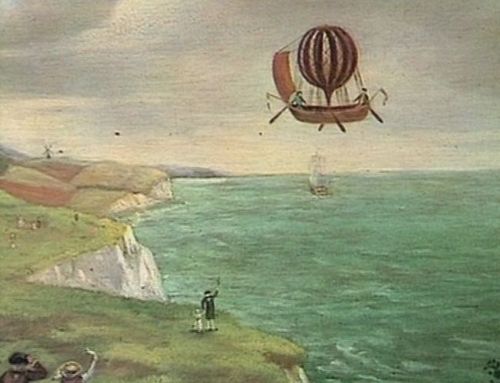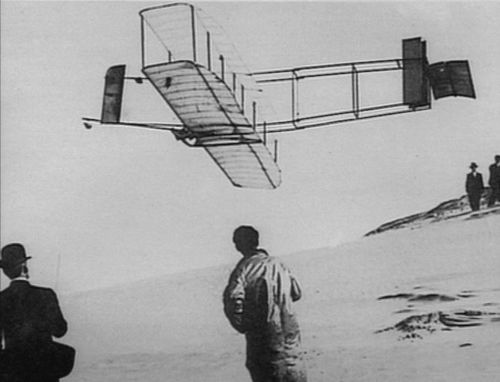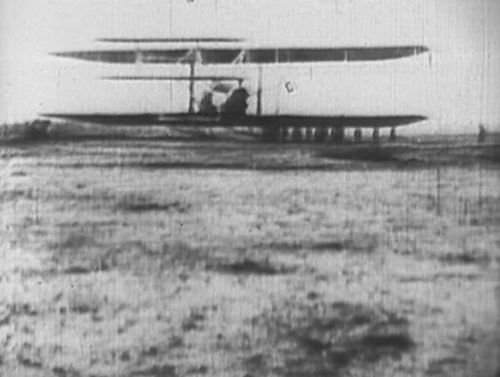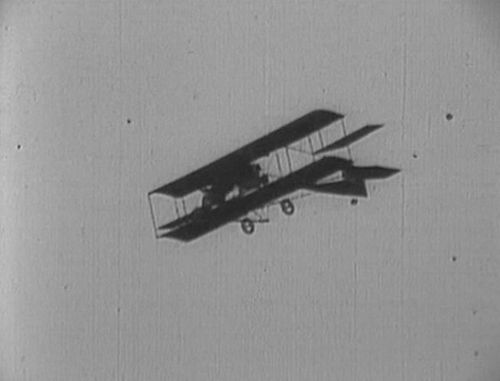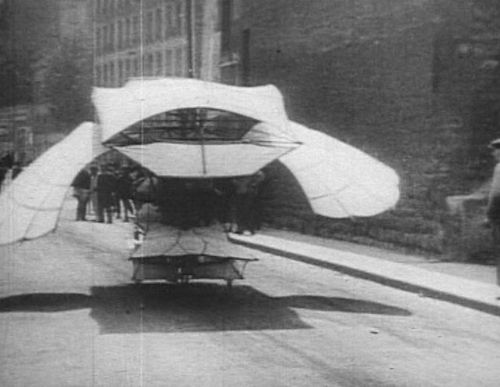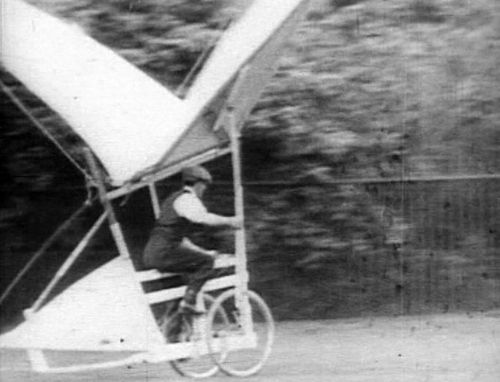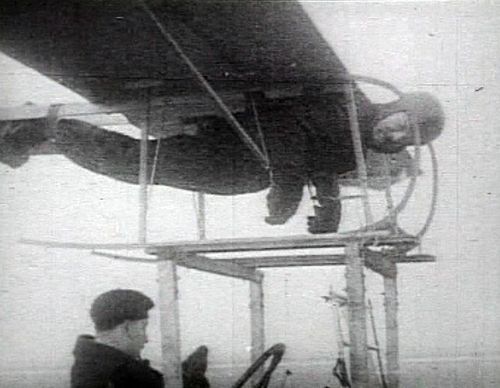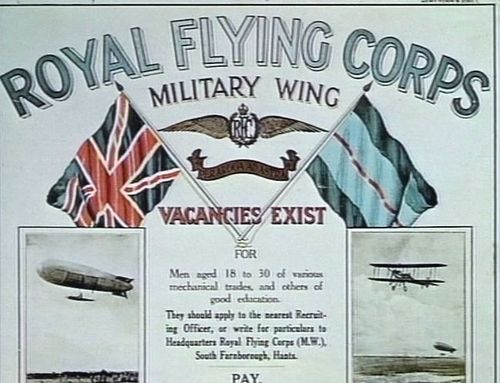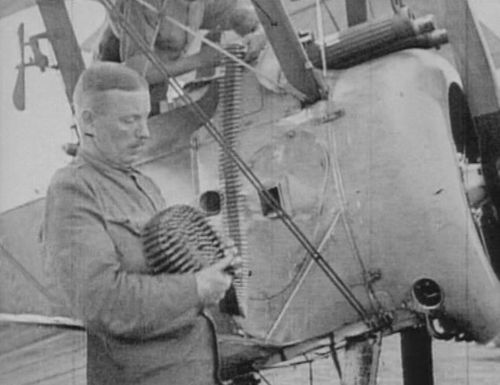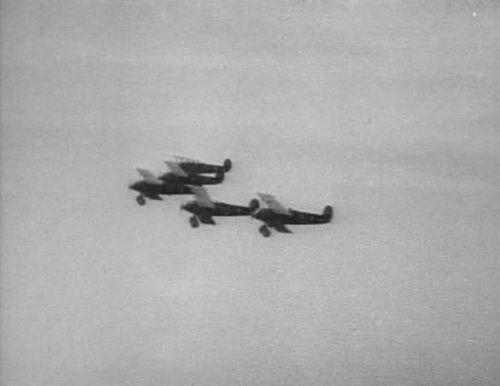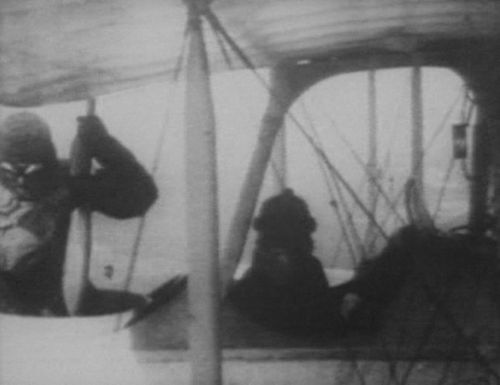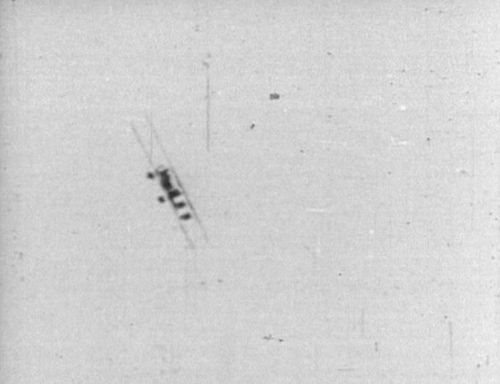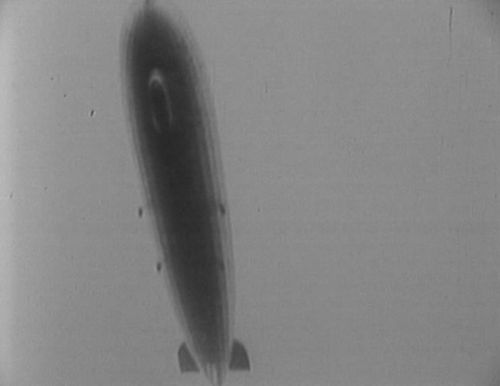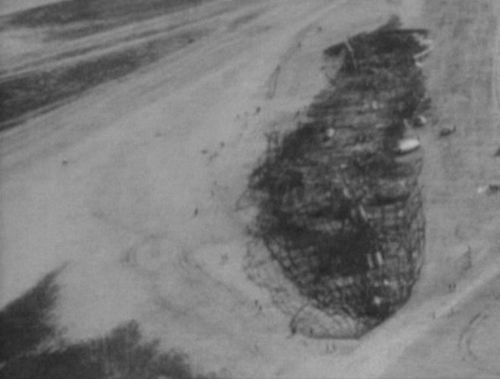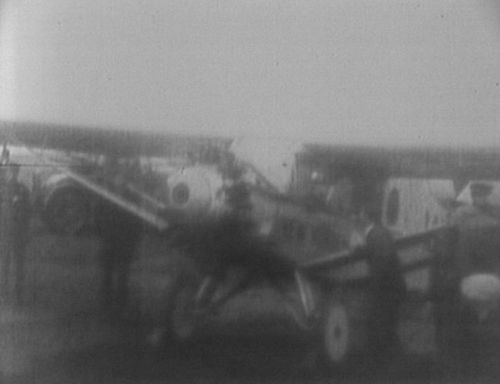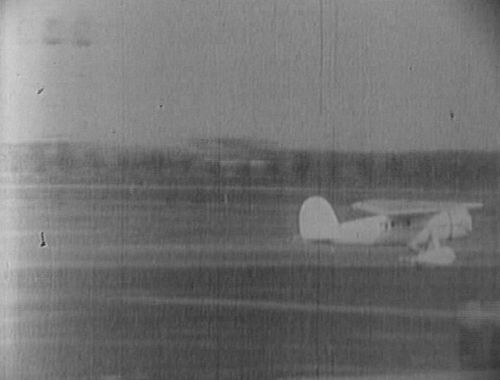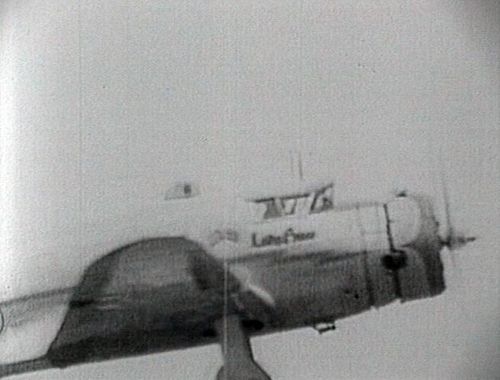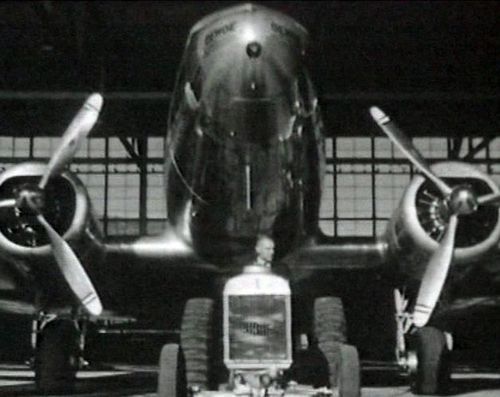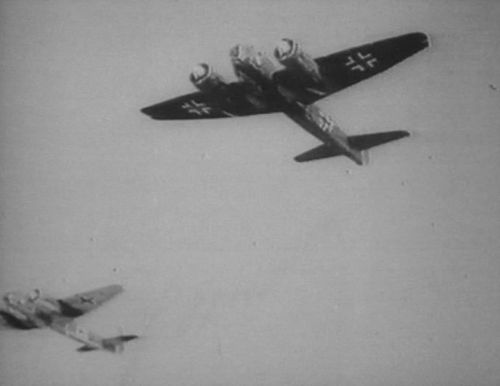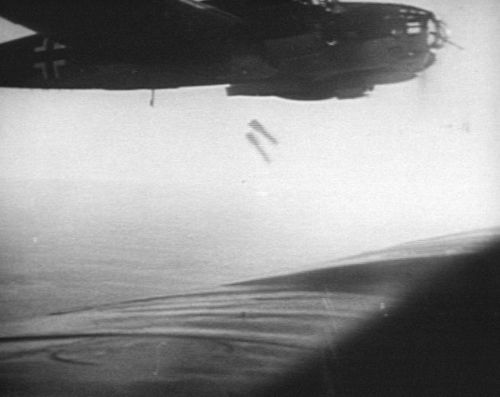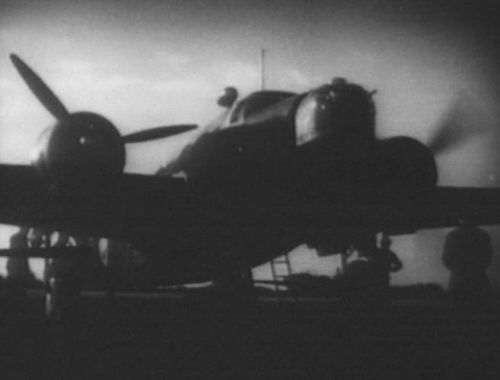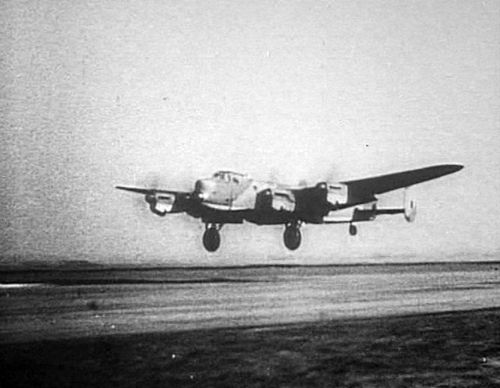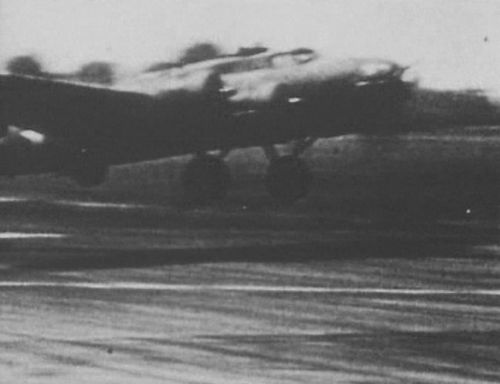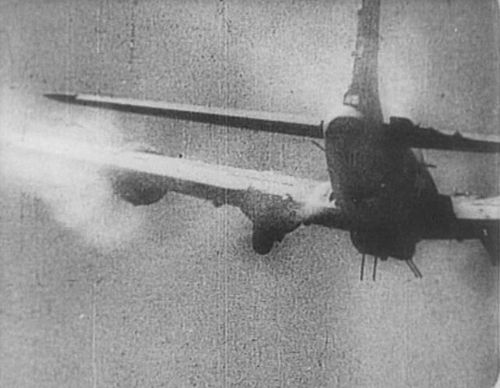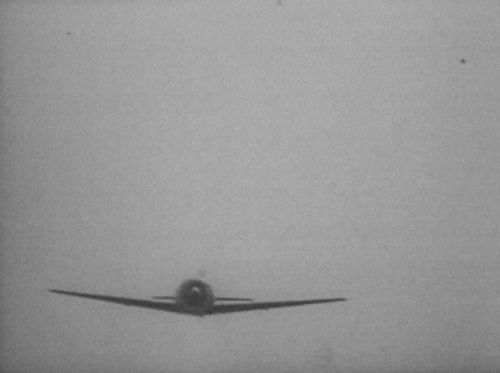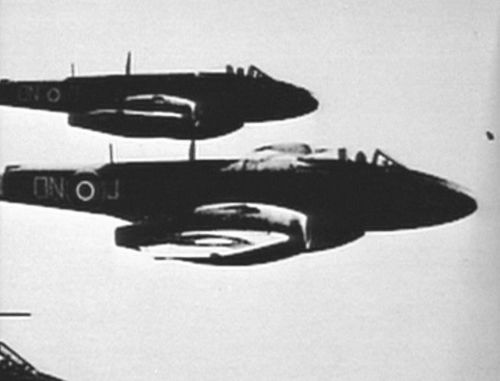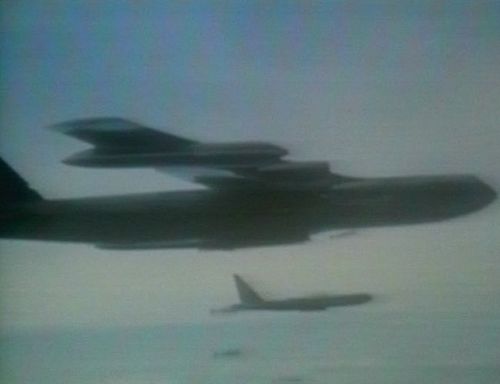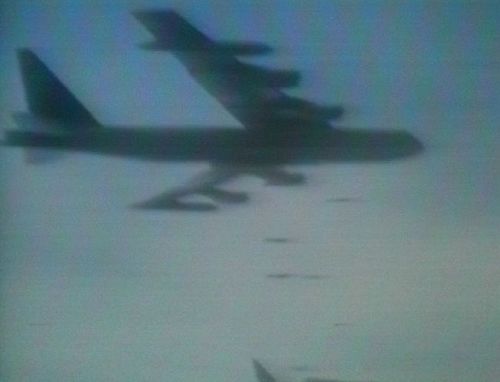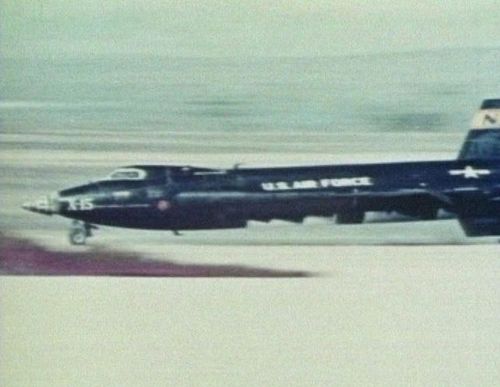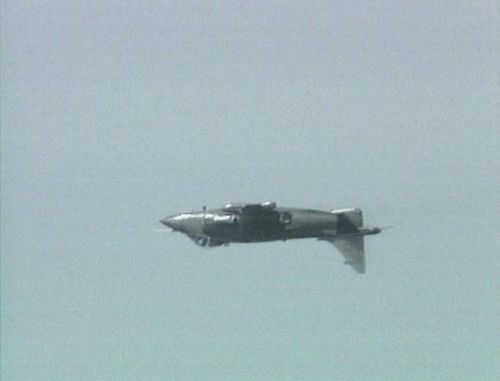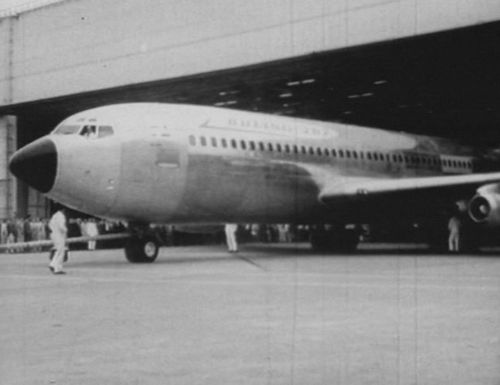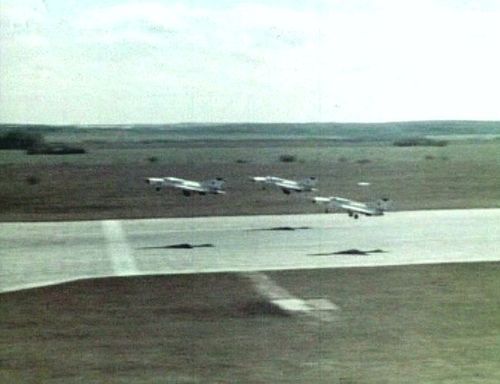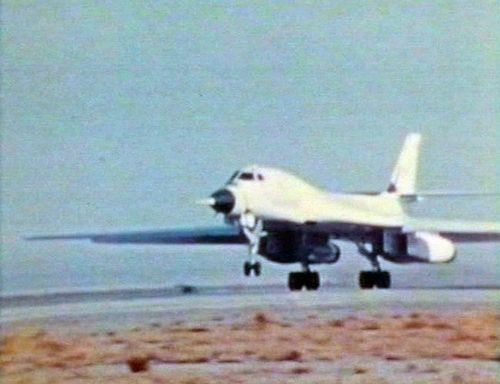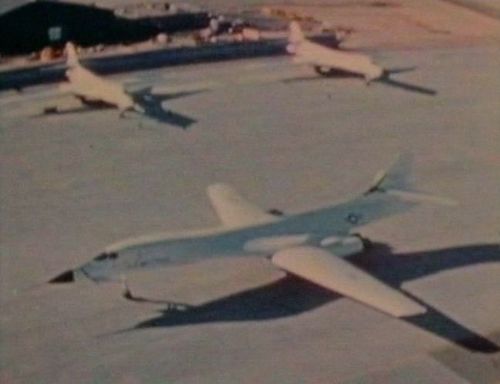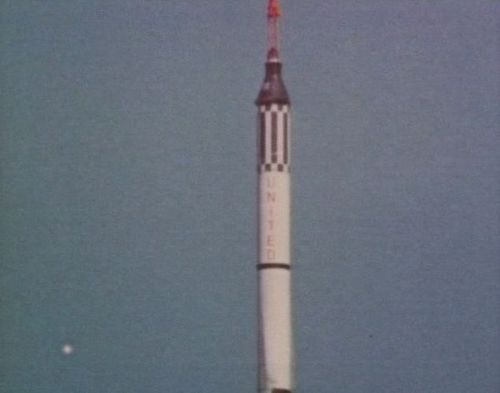Difference between revisions of "The Story of Aviation"
| Line 16: | Line 16: | ||
[[Image: AVION_MON_TSOA_CA.jpg|thumb|500px|none| Montgolfière Le Réveillon]] | [[Image: AVION_MON_TSOA_CA.jpg|thumb|500px|none| Montgolfière Le Réveillon]] | ||
| − | == [[:Category: Jacques Charles Aérostats| Ballon Dihydrogène Jacques Charles]] == | + | == [[:Category: Robert Frères-Jacques Charles Aérostats| Ballon Dihydrogène Robert Frères-Jacques Charles <i>Charlière</i>]] == |
1st December 1783. Take off from the Jardin des Tuileries of the dihydrogen balloon of J.Charles, with Marie-Noël Robert. They landed some tenth kilometers farther in Nesles la Vallée (Val d’oise). This was the 1st successful experience of a human flight with a gas-filled balloon. | 1st December 1783. Take off from the Jardin des Tuileries of the dihydrogen balloon of J.Charles, with Marie-Noël Robert. They landed some tenth kilometers farther in Nesles la Vallée (Val d’oise). This was the 1st successful experience of a human flight with a gas-filled balloon. | ||
[[Image: AVION_MON_TSOA_DA.jpg|thumb|500px|none| Dihydrogen Balloon J.Charles]] | [[Image: AVION_MON_TSOA_DA.jpg|thumb|500px|none| Dihydrogen Balloon J.Charles]] | ||
Revision as of 07:58, 28 December 2012
Documentary (2005)
(Synopsis needed)
Ballon Etienne et Joseph Montgolfier
Climb of the balloon of E&J.Montgolfier (225 Kg, 800m3) on 4th June 1783 in Annonay (France). The balloon went up at 1000m high and on 2 kilometers of distance in 10 minutes around.
Montgolfière Le Réveillon
Experience at Versailles on 19th Septembr 1783, carrying a lamb, a duck and a cock in a basket. The balloon named “Le Réveillon” (400 Kg 1400m3) went up at 500 m high on 3,5 kilometers of distance, for 8 minutes flight. The animals were alive and in healthy condition when the balloon landed. The experience showed that a balloon could carry a load and one can survive in altitude. Next step will be human flight.
Montgolfière Le Réveillon
First human flight at the Manufacture Royale des papiers peints La Folie Titon in Faubourg Saint-Antoine, close to Paris, on the 19th October 1783. Captive ascent with Jean-François Pilâtre de Rozier on board, 81m high. A second ascent done with Pilâtre de Rozier, and André Giroud de Villette, at 105m high.
Ballon Dihydrogène Robert Frères-Jacques Charles Charlière
1st December 1783. Take off from the Jardin des Tuileries of the dihydrogen balloon of J.Charles, with Marie-Noël Robert. They landed some tenth kilometers farther in Nesles la Vallée (Val d’oise). This was the 1st successful experience of a human flight with a gas-filled balloon.
Ballon Dihydrogène Jean-Pierre Blanchard
First flight over the Channel on the 7th January 1785, between Dover and Guînes, in 2h25 carrying J.P.Blanchard and John Jeffries. Jean-Pierre Blanchard aeronaut had made 66 flights in several countries, when he died in 1809 after having been hardly injured in an accident in 1808.
Ballon d’Observation L’entreprenant
First military use of a balloon by the French republican army, during the Battle of Fleurus in June 1794 against European coalition (Austrian, Dutch, British and German). There won’t be any further military uses of balloon until secession war in the USA.
Nassau Balloon Charles Green
First flight between London to Weilburg in Germany by British aeronaut Charles Green on the 7th and 8th November 1836. The travel took 18 hours for 772 kilometers of distance.
Unidentified Aircraft
Ballon Dirigeable Henri Giffard
On 24 September 1852 Giffard made the first powered and controlled flight travelling 27 km from Paris to Trappes.
Otto Lilienthal Segelflugzeug
Lilienthal's greatest contribution was in the development of heavier-than-air flight. He made his flights from an artificial hill he built near Berlin and from natural hills, especially in the Rhinow region.
Otto Lilienthal Segelflugzeug N°3
This pictures shows its glider N°3 on which he made its first successfull flight in 1891.
Otto Lilienthal Segelflugzeug N°11
This pictures shows its glider N°11 in 1894.
Otto Lilienthal Segelflugzeug N°13
Biplane glider N°13 on which Otto Lilienthal will crash on the 9 August 1896, and die the day after.
Wright Glider N°2
Wilbur Wright first flight with this model N°2 in 1901.
Wright Glider Kite
Wright Flyer I
First motorized flight, taking off by its own on the 17th December of 1903. 4 flights made in the day by Orville and Wilbur. Duration 59 seconds, and 259 meters of distance. Airplane was born.
Same aircraft seen in other movies - IMPDb: Frequently Seen Aircraft.
Wright Flyer III
Same aircraft seen in other movies - IMPDb: Frequently Seen Aircraft.
Wright A
Wright B-1
Seaplane version of the model B which went in production in 1910.
Voisin Farman I
Since 1907, piloted by Henri Farman, the first heavier-than-air flight lasting more than a minute in Europe, and also to make the first full circle. Around 80 were built.
Blériot XI
First fixed-wing aircraft to cross the Channel from Calais to Dover on the 25th July 1909. Successful aircraft at this era, built at 100 samples.
Same aircraft seen in other movies - IMPDb: Frequently Seen Aircraft.
Curtiss D
First aircraft to have took off from and land on a Navy ship on 14th November 1910. This two first pictures might figure one of these experience from the US Navy ship Pensylvania, in the San-Francisco bay on 18 January 1911.
Albessard La Balancelle
Experimental aircraft with tandem wings to improve security of flights . The design “ Autostable” was efficient but no commercial issues went later on though research going on till the 1926 . Built in 1913.
Albessard Aérobus
Further development of La Balencelle prototype, built in 1914.
Farman HF.11
Antoinette IV
Unidentified Aircraft
Same aircraft seen in another movie at IMPDb: Frequently Seen Aircraft.
Unidentified Aircraft
Unidentified Aircraft
Same footage seen in Fröhliche Zukunft! — Wünsche, Wunder und Visionen - A Look Forward - IMPDb: Frequently Seen Aircraft.
Unidentified Aircraft
Archive footage also seen in Those Magnificent Men in Their Flying Machines or How I Flew from London to Paris in 25 hours 11 minutes - IMPDb: Frequently Seen Aircraft.
RNAS Submarine Scout Class SSP
Used by Royal Navy and Royal Flying Corps during the WWI.
Nieuport IV
Farman MF.7
Rumpler C.IV
Same aircraft seen in other movies - IMPDb: Frequently Seen Aircraft.
Royal Aircraft Factory B.E.2C
Royal Aircraft Factory F.E.2b
Sopwith F.1 Camel
Also seen in World War I - IMPDb: Frequently Seen Aircraft.
Also seen in World War I - IMPDb: Frequently Seen Aircraft.
Royal Aircraft Factory S.E.5A
Bristol F.2B Fighter Mark II
Airco DH.6
Short S.184
Breguet 14 B.2
Fokker E.III
Fokker Dr.I
Albatros D.III
Avia BH-21
Unidentified Aircraft
First technique of bombing from an airplane.
Same aircraft seen in other movies - IMPDb: Frequently Seen Aircraft.
Gotha G.IV
Also seen in World War I - IMPDb: Frequently Seen Aircraft.
Zeppelin Staaken R.VI
Zeppelin LZ 10 Schwaben
Built in 1911 and operated by DELAG (Deutsche Luftschiffahrts-Aktiengesellschaft) for passenger service. It is regarded as the first commercially successful passenger-carrying aircraft.
Fokker D.VII
Nieuport 24 Bis
Vickers F.B.27A Vimy Transatlantic
Ansaldo SVA.5
Fokker F.VIIa/3M
Flight over the North Pole by Richard E.Byrd on the 9th May 1926.
Fokker F.VIIa/3M
Fokker F.VIIb/3M
Southern Cross was the first aircraft to cross the Pacific from the United States to Australia in June 1928, and the first to cross the Tasman Sea, flying from Australia to New Zealand and back in September of that year. Piloted by Charles Kingsford Smith.
Ford 4-AT-A Trimotor
Ryan NYP Spirit of Saint-Louis
Charles Lindbergh first flight from New-York to Paris on 20/21 May 1927.
Same aircraft seen in another movie at IMPDb: Frequently Seen Aircraft.
Dornier Do X
Zeppelin LZ 127 Graf Zeppelin
Also seen in A Look Forward - IMPDb: Frequently Seen Aircraft.
Zeppelin LZ 129 Hindenburg
Also seen in:
A Decade to Remember: The 1930's
Jackboots on Whitehall
Mysteres d'archives: 1937 crash du Hindenburg
IMPDb: Frequently Seen Aircraft.
Wright-Bellanca WB-2
Registration NX237. This airplane named Columbia did many records of endurance.
Couzinet 70 Arc en ciel III
Arc en ciel III used by Aéropostale on South Atlantic route.
Handley Page H.P.45
Registration G-AAXC, serial n° 42/5.
Also seen in Imperial Airways - The Definitive Newsreel History 1924-1939 - IMPDb: Frequently Seen Aircraft.
Lockheed Vega 5C
Wiley Post’s Winnie Mae.
Macchi M.39
Curtiss R3C-2
Supermarine S.5
Supermarine S.6
Beardmore Inflexible
Big experimental aircraft of 1928. Serial n° J7557.
Gloster Gladiator I
Hawker Hart I
Hawker Hurricane I
Hawker Hurricane IIA
Vultee V-1A
Boeing 247D
Reg.NC13347, serial n°1729.
Douglas DC-2
Douglas DC-3
Douglas DC-3A
Douglas DST-217A
Douglas Sleeper Transport of American Airlines.
Douglas Dakota III
Registration G-AHCW, serial n° 13308. Ex Royal Air Force.
Registration G-AHCX, serial n° 13335. Ex Royal Air Force.
Douglas DC-3A-209B
Supermarine Spitfire
First flight of the prototype registered K5054 on the 5 March 1936.
Supermarine Spitfire I
Messerschmitt Bf 109E
Junkers Ju-87B Stuka
Junkers Ju-88A
Dornier Do-217
Heinkel He 111E.
Heinkel He 111H.
Vickers 285 Wellington Mk.I
Avro Lancaster B I
Avro Lancaster B II
Boeing B-17E Flying Fortress
Boeing B-17G Flying Fortress
Focke-Wulfe Fw 190A
Messerschmitt Me 163 B-1 Komet
Messerschmitt Me 262 A-1a Swalbe
First jet aircraft to be operational at war.
Arado Ar 234 Blitz
First jet aircraft bomber used in a conflict.
Gloster Meteor F3
First British jet aircraft to be operational in the last months of WWII.
Gloster Meteor F4
Gloster Meteor F8
Bell X-1-1
Registration X46062 Glamorous Glennis, first aircraft, piloted by Chuck Yeager, to have reached Mach 1.
Bell X-1-2
Registration X46063. Will be retrofitted as X-1E.
Bell X-1A
Registration 48-1394. First flights at Mach 2. [Image: AVION_ANN50_TSOA_BA.jpg |thumb|500px|none|Reg. 48-1394 Bell X-1A of the USAF.]]
Republic F-84G Thunderjet
Lockheed F-94B Starfire
Lockheed P-80B Shooting Star
WSK-Mielec Lim-2
Boeing B-29 Superfortress
Boeing B-47E Stratojet
Boeing B-52B Stratofortress
North American X-15A-2 & Boeing NB-52B Stratofortress
North American X-15A-2
North American F-100 Super Sabre
Northrop F-5 Freedom Fighter
Lockheed L-749 Constellation
McDonnell Douglas F-4D Phantom II
McDonnell Douglas F-4B Phantom II
McDonnell Douglas F-4E Phantom II
Hawker Siddeley Harrier AV-8A
McDonnell Douglas AV-8B Harrier II
McDonnell Douglas TAV-8B Harrier II
BAe Sea Harrier FRS-1
Lockheed F-104C Starfighter
Boeing KC-135A
Boeing 707-320
Boeing 707-131
Douglas DC-8-43
Boeing 747
Boeing 747-236B
Tupolev Tu-144
Aérospatiale-BAC Concorde 102
Registration G-BOAB, serial n°208.
Dassault Mirage III NG 01
Mikoyan-Gurevich MiG-21
Mikoyan-Gurevich MiG-23
Mikoyan MiG-29
General Dynamics F-111 Aardvark
Rockwell B-1A Lancer
Lockheed YF-12A
Grumman F-14 Tomcat
On the first picture, a Lockheed S-3 Vikings is in the bottom right corner.
Ling-Temco-Vought A-7 Corsair II & Grumman F-14 Tomcat
Boeing-Douglas-North American Saturn V Apollo 11
Same aircraft in other movies at IMPDb: Frequently Seen Aircraft.
Mittlewerk EWM A4 Vergeltungswaffe V-2
ABMA Bumper B-7
US copy of the German V-2 from Army Ballistic Missile Agency. Lauched on the 29th July 1950.
Another unidentified Bumper.
Chrysler Mercury Redstone
Rockwell Space Shuttle Columbia OV-102
Lockheed AH-56 Cheyenne
The project was cancelled after only 10 produced.
Sud Aviation SA 316B Alouette III
Bell UH-1 Iroquois
Sikorsky H-34 Choctaw
Sikorsky S-61R/HH-3 Pelican
Back To:
See also
- Unidentified Aircraft
- Aérospatiale-BAC Concorde
- Aérospatiale SA 316/319 Alouette III
- Aérospatiale SA 321 Super Frelon
- Airco DH.6
- Albatros D.III
- Antoinette IV
- Ansaldo SVA
- Avro Lancaster
- BAe/McDonnell Douglas Harrier II
- Bell UH-1 Iroquois
- Bell X-1
- Blériot XI
- Boeing 247
- Boeing 707
- Boeing 747
- Boeing B-17 Flying Fortress
- Boeing B-29 Superfortress
- Boeing B-47 Stratojet
- Boeing B-52 Stratofortress
- Boeing C-135
- Boeing-Douglas-North American Saturn V
- Breguet 14
- Bristol F.2 Fighter
- Couzinet 70
- Curtiss D
- Curtiss R3C
- Dassault Mirage III
- Dornier Do X
- Douglas DC-2
- Douglas DC-3
- Douglas DC-8
- Focke-Wulf Fw 190
- Fokker E.III
- Fokker Dr.I
- Fokker D.VII
- Fokker F.VII
- General Dynamics F-111 Aardvark
- Gloster Meteor
- Gotha G.IV
- Grumman F-14 Tomcat
- Hawker Hurricane
- Hawker Siddeley Harrier
- Heinkel He 111
- Jacques Charles Aérostats
- Junkers Ju-87 Stuka
- Junkers Ju-88
- Ling-Temco-Vought A-7 Corsair II
- Lockheed Constellation
- Lockheed F-94 Starfire
- Lockheed F-104 Starfighter
- Lockheed P-80 Shooting Star
- Lockheed SR-71 Blackbird
- Lockheed S-3 Viking
- Lockheed Vega
- McDonnell Douglas F-4 Phantom II
- McDonnell Douglas F/A-18 Hornet
- Messerschmitt Bf 109
- Messerschmitt Me 163
- Messerschmitt Me 262
- Mikoyan-Gurevich MiG-15
- Mikoyan-Gurevich MiG-21
- Mikoyan-Gurevich MiG-23
- Mikoyan MiG-29
- Mittlewerk EWM Vergeltungswaffe V-2
- Montgolfier Aérostats
- Nieuport 24
- North American X-15
- North American F-100 Super Sabre
- Northrop F-5
- Panavia Tornado
- Republic F-84 Thunderjet
- Rockwell B-1 Lancer
- Rockwell Space Shuttle
- Royal Aircraft Factory B.E.2
- Royal Aircraft Factory F.E.2
- Royal Aircraft Factory S.E.5
- Rumpler C.IV
- Ryan NYP
- Sikorsky H-34
- Sopwith Camel
- Supermarine S.5
- Supermarine S.6
- Supermarine Spitfire
- Tupolev Tu-144
- Vickers Wellington
- Voisin Farman I
- Wright A
- Wright Flyer I
- Wright Flyer III
- Zeppelin LZ 10
- Zeppelin LZ 127
- Zeppelin LZ 129









